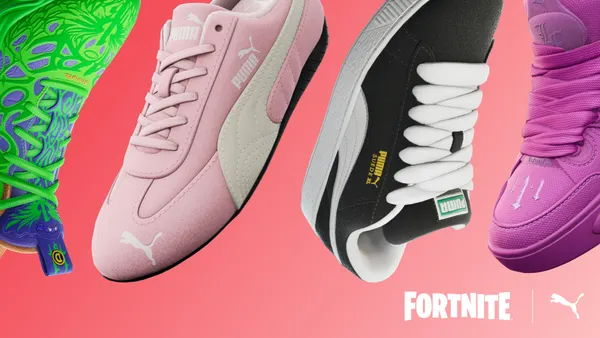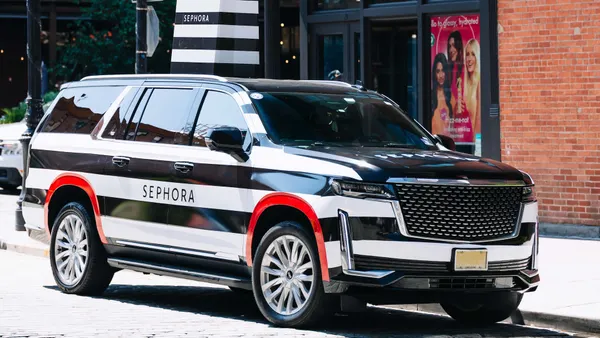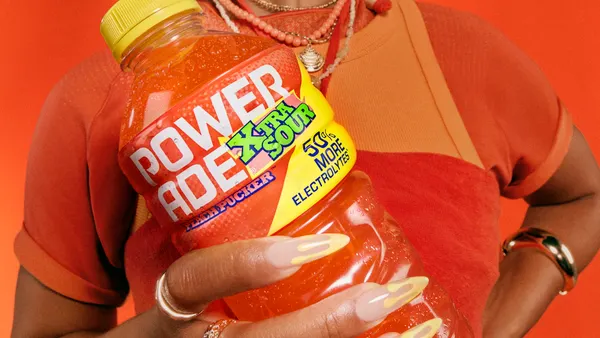Unilever antiperspirant brand Degree recently launched a social media campaign in the U.S. and U.K. in which protective equipment for athlete influencers like wheelchair motocross champion Aaron “Wheelz” Fotheringham are turned into ads, according to information shared with Marketing Dive.
The effort is part of the brand’s “Movement Champions” social impact platform that seeks to break down barriers — financial, cultural or racial — that limit movement and exercise for some people. Developed in partnership with AMV BBDO, the campaign includes creative showing people using protection equipment, such as airbags, crash mats, gum shields and helmets, printed with the antiperspirant brand’s “nonstop” messaging.
In one ad, Fotheringham uses crash pads imprinted with “nonstop” to perform stunts in his wheelchair. Other talent appearing in the campaign include paralympic athlete Blake Leeper and former ASU wrestler Marlee Smith.
The campaign was inspired by research showing 90% of the population experience self doubt when facing a new challenge, according to the press release. Degree, which is known as Sure in the U.K. and Rexona in the rest of the world. The “Crash Ads” campaign shows the brand literally protecting people as they try new things.
Degree has made an effort toward diversity and inclusion in previous campaigns. In April of 2022, it partnered with metaverse platform Decentraland, rapper Fat Joe and Leeper to host what it claimed to be the first marathon in the metaverse and included a push around inclusivity. Also last year, the Unilever brand looked to close the March Madness “bracket gap,” by encouraging college basketball fans to fill out brackets for women’s teams for a chance to win a cash prize.
The campaign sees Unilever leaning into social media and influencers to engage with consumers around a social cause, a tactic the company has previously employed. Another cause that features prominently on Unilever’s social impact platform is sustainability, and according to internal research by the company, influencers have the largest impact on consumers’ sustainability choices.














